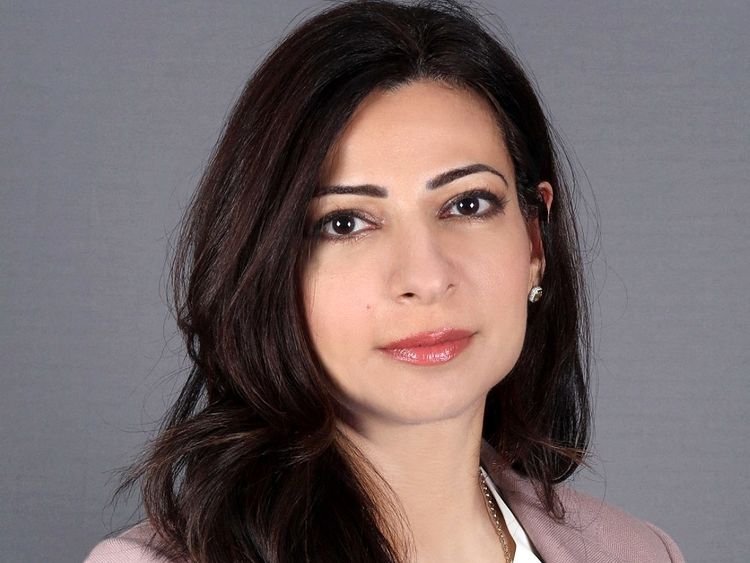The financial world in the Gulf Cooperation Council (GCC) is buzzing with news: the CEO of First Abu Dhabi Bank (FAB) has been named the most powerful businesswoman in the GCC. This prestigious recognition highlights her exceptional leadership, strategic vision, and influence in one of the region’s most dynamic banking sectors. But who is this trailblazing leader, and what makes her stand out in a competitive landscape? Let’s dive into her journey, achievements, and the impact she’s making.
A Leader Redefining Banking in the GCC
The title of the most powerful businesswoman in the GCC is no small feat. The GCC, comprising Bahrain, Kuwait, Oman, Qatar, Saudi Arabia, and the UAE, is home to some of the world’s most vibrant economies. Leading First Abu Dhabi Bank, the UAE’s largest bank by assets, this CEO has demonstrated unparalleled expertise in navigating complex financial markets. Her ability to steer FAB through economic challenges while driving growth has earned her widespread respect.
Her leadership style is a blend of innovation and pragmatism. Colleagues describe her as a visionary who balances bold strategies with a deep understanding of regional dynamics. Under her guidance, FAB has solidified its position as a powerhouse, not just in the UAE but across the GCC and beyond.

Key Achievements at First Abu Dhabi Bank
- Record Growth: FAB’s assets have grown significantly, reinforcing its dominance in the region.
- Digital Transformation: She has championed cutting-edge technologies, making FAB a leader in digital banking.
- Sustainability Focus: Initiatives under her leadership have prioritized green finance and ESG (Environmental, Social, Governance) goals.
- Global Expansion: FAB’s international presence has expanded, with new ventures in key markets.
The Journey to the Top

Her rise to becoming the most powerful businesswoman in the GCC wasn’t overnight. Born and raised in the UAE, she developed an early interest in finance, inspired by the region’s rapid economic growth. After earning advanced degrees in business and finance from prestigious institutions, she began her career in banking, quickly climbing the ranks due to her sharp intellect and dedication.
Her journey wasn’t without challenges. The financial sector, historically male-dominated, posed obstacles, but she broke barriers with her resilience and competence. Mentorship from industry leaders and her commitment to continuous learning helped her navigate these hurdles. Today, she stands as a role model for aspiring female leaders across the GCC.

Milestones in Her Career
- Early Career: Started in junior roles, gaining expertise in corporate finance and risk management.
- Leadership Roles: Held key positions in regional and international banks before joining FAB.
- CEO Appointment: Became FAB’s CEO, a historic moment for women in GCC banking.
- Industry Recognition: Consistently ranked among the top business leaders in global and regional lists.
Being named the most powerful businesswoman in the GCC is more than just a title—it’s a testament to her influence in shaping the region’s economic future. The GCC is a hub for oil, trade, and finance, and women in leadership roles are increasingly driving progress. This recognition, often awarded by reputable publications like Forbes or Arabian Business, highlights the growing role of women in transforming industries traditionally dominated by men.
Her ranking sends a powerful message: women can lead at the highest levels, even in competitive sectors like banking. It also underscores FAB’s role as a forward-thinking institution that values diversity and innovation.
Impact on the GCC Business Landscape
- Inspiring Future Leaders: Her success motivates young women to pursue careers in finance.
- Promoting Diversity: FAB’s inclusive policies under her leadership set a benchmark for other organizations.
- Economic Influence: Her decisions at FAB impact investment, trade, and financial stability in the GCC.
Driving Innovation at First Abu Dhabi Bank
One of her standout qualities is her focus on innovation. In an era where digital banking is reshaping the industry, she has positioned FAB at the forefront of this transformation. From mobile banking apps to AI-driven financial tools, FAB is setting new standards for customer experience. Her strategic vision ensures that the bank remains competitive in a rapidly evolving global market.
She’s also a strong advocate for sustainability. Under her leadership, FAB has launched initiatives to support green projects, aligning with the UAE’s Vision 2030 goals. These efforts not only enhance the bank’s reputation but also contribute to the region’s long-term economic resilience.
Notable Innovations
- Fintech Partnerships: Collaborations with tech startups to enhance banking services.
- AI and Data Analytics: Leveraging technology to improve decision-making and customer insights.
- Sustainable Finance: Leading the charge in green bonds and eco-friendly investments.
Challenges and Resilience
Leading a major bank in the GCC comes with immense pressure. Economic fluctuations, geopolitical tensions, and the shift toward digital economies present ongoing challenges. Yet, her ability to adapt and innovate has kept FAB ahead of the curve. During the global economic downturns, she implemented strategies that protected the bank’s stability while fostering growth.
Her resilience is also evident in her commitment to work-life balance. Despite her demanding role, she emphasizes the importance of well-being and encourages her team to prioritize mental health. This human-centered approach has earned her loyalty from employees and admiration from peers.
The Bigger Picture: Women in Leadership
Her recognition as the most powerful businesswoman in the GCC shines a spotlight on the evolving role of women in the region. The GCC has made significant strides in gender equality, with countries like the UAE and Saudi Arabia promoting women in leadership roles. Her success is part of a broader movement to empower women in business, technology, and government.

Organizations across the GCC are now prioritizing diversity, with more women taking on C-suite roles. This shift is not just about fairness—it’s about results. Studies show that diverse leadership teams drive better financial performance and innovation. Her story is proof of this.
Steps Toward Gender Equality in the GCC
- Government Initiatives: Policies in the UAE and Saudi Arabia promote women in leadership.
- Corporate Programs: Companies like FAB are investing in mentorship for women.
- Cultural Shifts: Attitudes toward women in business are becoming more progressive.
What’s Next for FAB’s CEO?
As the most powerful businesswoman in the GCC, her journey is far from over. She has ambitious plans for FAB, including further expansion into international markets and deeper investments in sustainable finance. Her leadership will likely continue to shape the GCC’s financial sector, setting new benchmarks for excellence.
She’s also committed to mentoring the next generation of leaders. Through speaking engagements and industry forums, she shares insights on leadership, innovation, and resilience. Her influence extends beyond FAB, inspiring change across the region.
Future Goals
- Global Reach: Expanding FAB’s presence in Asia, Europe, and Africa.
- Tech Leadership: Pioneering new financial technologies to enhance customer experience.
- Mentorship: Supporting young women in finance through structured programs.
Conclusion
The CEO of First Abu Dhabi Bank being named the most powerful businesswoman in the GCC is a milestone for her, FAB, and the region. Her leadership, marked by innovation, resilience, and a commitment to diversity, is transforming the banking industry. As she continues to break barriers and drive progress, her story inspires countless others to aim high. The GCC’s financial future is brighter because of her vision, and her legacy as a trailblazer is just beginning.
Read More: Al Khaznah Leathers: Ethically Produced Leather from the Emirates














